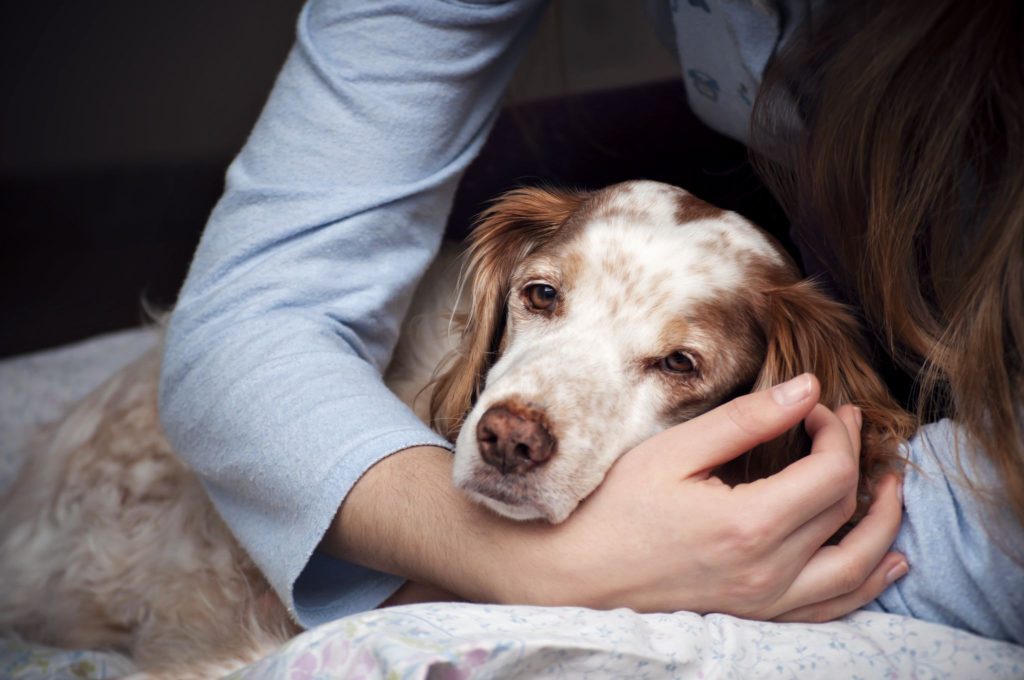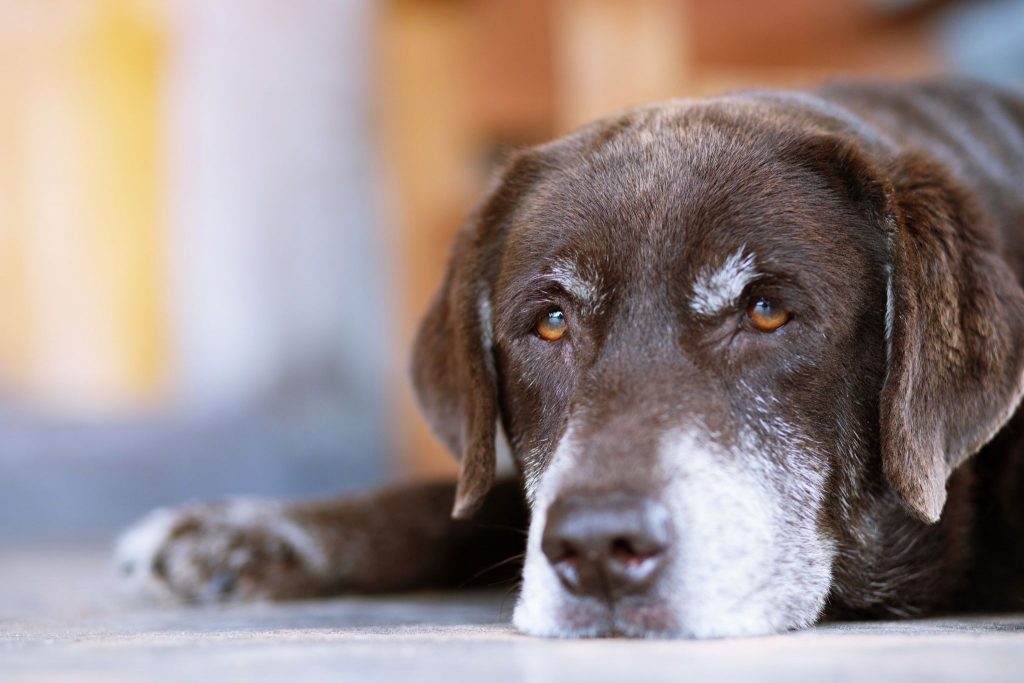How to Care for a Senior Dog

As your dog ages, eventually they will be considered a senior dog. The age at which they become senior dogs depends on their breed. For instance, most smaller dogs are considered seniors around age ten to twelve, whereas large breeds could become seniors when they are five to seven.
Your dog’s lifestyle and genetics also play a role in aging. You could have a larger dog who is seven and still runs around and plays as if they were a puppy. As a pet parent, it is important to watch for signs that your dog is getting older and becoming a senior and use these tips to make the appropriate accommodations for your furry family member.
Tip #1: Monitor Their Behaviour
Keep an eye on your dog’s behaviour. Older dogs tend to have less energy, so they will rest and sleep more. They can start showing signs of arthritis and dementia, just like humans. They can also develop cataracts and lose their hearing. They could even develop bladder control issues.
Monitoring your dog’s behaviour can help you provide the necessary accommodations. For instance, installing a pet door for your dog, allowing them to come and go easily, can help decrease the number of accidents they have inside your home.
Tip #2: Increase Their Vet Visits
Senior dog care requires visiting the vet more often—at least two vet visits a year. On average, dogs age about six to seven years for every human year. For senior dogs, various types of health problems can develop in one human year.
Senior wellness exams help detect potential health issues before they become major concerns. They also help establish a more consistent health record for your dog to make it easier to identify changes in their overall health and well-being.
Tip #3: Improve Their Diet
Senior dogs have different dietary needs than puppies or adult dogs. Just like humans, their metabolism starts to slow. As a result, they can become fatter with weight gain. Older dogs can experience digestive issues and constipation as well.
Adjusting their diet can involve switching to dog food that is tailored to their dietary needs. Dietary supplements could also become necessary to ensure your dog is getting the proper nutrients.
Tip #4: Ensure Regular Exercise
Just because your dog is older does not mean it does not need regular exercise. However, adjust your dog’s exercise routines to reflect changes in its age and abilities. For instance, short walks at a slower pace can be better than attempting to jog or run with a senior dog.
When you take your dog on walks, remember to listen to its breathing. If your dog starts panting or breathing heavily, stop and let it take a break. Remember to bring along a water dish and bottle of water to keep it hydrated too.
Tip #5: Make Sure Your Dogs Feel Loved
Older dogs require just as much love as puppies and adult dogs. Yet, senior dogs can start to feel more anxious and alone when they do not get as much attention and love as they deserve. Plan a specific time each day to spend giving your dogs plenty of attention like cuddling up with them on the couch while you watch TV.
Tip #6: Make Sure They Are Entertained
Senior dogs need physical and mental stimulation. Provide them with various types of toys and games to keep them engaged. There are even food puzzle games they can solve to earn a treat. You can even create your own games like digging small holes in the backyard and hiding treats for them to sniff out and find.
Tip #7: Assist with Grooming
Older pets can start to have difficulties grooming themselves. Make sure to brush your dog daily to keep its fur from matting. A warm bath once a week keeps a dog clean. Plus, the warm water can help soothe any aches and pains.
Tip #8: Make Necessities Easily Attainable
When your dog was a puppy, you took the time to puppy-proof your home. Now that your dog is a senior, you need to make changes to various accommodations, including:
- Get elevated food and water dishes. Senior pets can have problems eating and drinking when they have to bend their heads down and into the bowl. Elevated bowls make it easier for your dog to eat and drink.
- Get a dog ramp or dog stairs for easier climbing. If your dog likes sitting on the couch or sleeps in your bed, it can become more challenging for a dog to climb up and get down. A dog ramp or short set of dog stairs allows access with less strain.
- Replace the doggie door if needed. If you notice your dog is having problems getting in and out through the doggie door, you may need to replace it or make other changes to make the doggie door more accessible. For example, if the door is slightly elevated, add a ramp to make it easier for your dog to go through it.
Tip #9: Monitor Your Dog’s Oral Health
Many types of health problems can occur when your dog’s oral health suffers. Bacterial and viral infections can start in the mouth and spread to other areas of the body. Furthermore, risks for oral cancer and oral tumors can increase when oral health is not maintained.

Make sure your dog has plenty of chew toys to remove plaque from their teeth. Continue to brush their teeth and get dental care cleanings from your vet. Healthy teeth can also improve your older pet’s overall health.
By using these tips, your senior dog will be more comfortable as it ages and could live longer.
To find doggie doors for your senior dog or other pets, please feel free to browse our website or contact Australia Pet Doors at 0437-644-330 or +61-437-644-330 today! We carry a wide range of pet doors for different-sized dogs and cats, including microchip pet doors.
